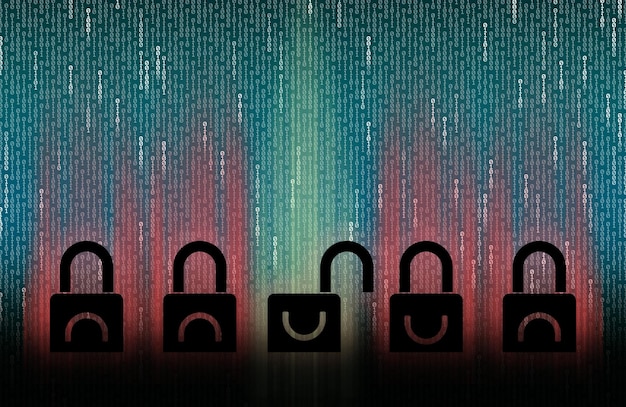Online Proctoring in 2025: Exam Security & Privacy Guide

Online proctoring is set to advance significantly by 2025, integrating AI-driven security measures and enhanced privacy protocols to ensure exam integrity and student data protection in online learning environments.
As online learning continues to evolve, online proctoring: What You Need to Know About Exam Security and Privacy in 2025 becomes increasingly critical. This article explores how these technologies are adapting to meet the demands of both security and student privacy in the ever-changing landscape of online education.
Understanding the Evolution of Online Proctoring
Online proctoring has transformed significantly, evolving from basic webcam monitoring to sophisticated systems that leverage artificial intelligence. This evolution addresses the growing need for secure and reliable methods of assessment.
The future of online proctoring hinges on striking a balance between stringent security measures and respecting the privacy of students. As technology evolves, so do the approaches to maintaining academic integrity in online environments.
The Rise of AI in Proctoring
Artificial intelligence is revolutionizing online proctoring by providing advanced capabilities to detect and prevent cheating. AI algorithms can analyze student behavior, identify suspicious activities, and ensure adherence to exam rules.
Privacy Concerns and Solutions
One of the primary concerns surrounding online proctoring is the potential invasion of student privacy. Solutions such as anonymized data analysis, transparent data handling policies, and student consent protocols are being implemented to address these concerns.
- Enhanced data encryption to protect student information.
- Real-time monitoring with human oversight for nuanced decision-making.
- AI-driven anomaly detection to flag suspicious behavior.
- Integration with learning management systems for seamless user experience.
The integration of these technologies aims to create a secure yet respectful testing environment, fostering trust between educational institutions and students.

Key Security Features in Online Proctoring
Online proctoring systems offer a range of security features designed to maintain the integrity of online exams. These features aim to prevent cheating and ensure a fair testing environment for all students.
By using a combination of advanced technologies and human oversight, these systems can effectively deter misconduct and uphold academic standards in online education.
Facial Recognition and Biometric Authentication
Facial recognition technology verifies the identity of the test-taker. Biometric authentication adds an additional layer of security, ensuring that the person taking the exam is who they claim to be.
Screen Monitoring and Recording
Screen monitoring and recording tools capture the student’s screen activity during the exam. This helps in detecting unauthorized software use or access to external resources.
- Browser lockdown to prevent access to unauthorized websites.
- Real-time monitoring of video and audio feeds.
- Automated incident reporting for suspicious activities.
- Secure exam browsers to limit functionality during testing.
These features work together to create a comprehensive security framework, minimizing the opportunities for cheating and ensuring the validity of exam results.
Addressing Privacy Issues in Remote Exams
Privacy is a critical concern in online proctoring. Balancing the need for security with the protection of student data requires careful consideration and implementation of robust privacy measures.
Educational institutions and proctoring service providers are working to implement policies and technologies that prioritize student privacy while maintaining the integrity of online exams.
Data Minimization and Retention Policies
Data minimization involves collecting only the data necessary for proctoring purposes. Retention policies ensure that student data is not stored indefinitely, reducing the risk of data breaches.
Transparency and Consent
Transparency about data collection practices and obtaining student consent are essential for building trust. Clearly communicating how data is used and providing students with control over their data can alleviate privacy concerns.
- Implementing end-to-end encryption for data transmission.
- Providing options for students to review and delete their data.
- Conducting regular privacy audits to ensure compliance.
- Offering training for proctors on privacy best practices.
By prioritizing privacy, online proctoring systems can foster a more positive and trustworthy testing experience for students.

Future Trends in Online Proctoring Technology
The field of online proctoring is rapidly evolving, driven by advancements in artificial intelligence, machine learning, and data analytics. These technologies are shaping the future of remote exam security and privacy.
As online education continues to grow, these trends will play a crucial role in ensuring the integrity and credibility of online assessments.
AI-Driven Proctoring Enhancements
AI-driven proctoring enhancements include more sophisticated behavior analysis, improved fraud detection, and personalized learning experiences. These advancements will make online proctoring more accurate and less intrusive.
Blockchain for Secure Credentialing
Blockchain technology can be used to create secure and verifiable digital credentials. This ensures that exam results and certifications are tamper-proof and easily verifiable by potential employers.
- Integration of virtual reality (VR) for immersive and secure testing environments.
- Development of adaptive proctoring systems that adjust security measures based on individual student risk profiles.
- Use of biometrics beyond facial recognition, such as voice and gait analysis.
- Expansion of data analytics to identify and address systemic issues in online testing.
These future trends promise to create more secure, efficient, and fair online proctoring systems, benefiting both students and educational institutions.
Best Practices for Implementing Online Proctoring
Implementing online proctoring effectively requires careful planning and adherence to best practices. This ensures that the system is both secure and respectful of student privacy.
By following these guidelines, educational institutions can create a positive and reliable online testing environment.
Choosing the Right Proctoring Solution
Selecting the right proctoring solution involves considering factors such as the specific security needs of the exam, the privacy requirements of the institution, and the technical capabilities of the students.
Training and Communication
Providing adequate training for proctors and clearly communicating the proctoring process to students is essential. This helps to alleviate anxiety and ensure that everyone understands the rules and procedures.
- Conducting pilot tests to identify and address potential issues.
- Developing clear and accessible guidelines for students and proctors.
- Establishing a support system to address technical issues and answer questions.
- Regularly reviewing and updating proctoring policies based on feedback and best practices.
Implementing these best practices ensures that online proctoring is conducted fairly and effectively, maintaining the integrity of online exams while respecting student privacy.
Navigating the Legal and Ethical Landscape
The use of online proctoring raises a number of legal and ethical considerations that must be addressed. Understanding these issues is crucial for ensuring compliance and maintaining ethical standards.
Educational institutions and proctoring service providers must work together to navigate this complex landscape and uphold the rights of students.
Compliance with Privacy Regulations
Compliance with privacy regulations such as GDPR and CCPA is essential. This involves implementing data protection measures, obtaining necessary consents, and ensuring transparency in data processing practices.
Ethical Considerations in AI Proctoring
Ethical considerations in AI proctoring include addressing bias in algorithms, ensuring fairness in decision-making, and providing transparency in the use of AI technologies.
- Developing clear policies on data usage and sharing.
- Providing students with access to their data and the ability to correct inaccuracies.
- Conducting regular audits to ensure compliance with privacy laws.
- Establishing a process for addressing student complaints and concerns.
By addressing these legal and ethical issues, online proctoring systems can be implemented in a responsible and trustworthy manner.
| Key Aspect | Brief Description |
|---|---|
| 🔒 Security Features | Facial recognition, screen monitoring, and browser lockdown ensure exam integrity. |
| 🛡️ Privacy Measures | Data minimization, transparency, and student consent protect personal information. |
| 🤖 AI Integration | AI enhances behavior analysis and fraud detection, making proctoring more accurate. |
| ⚖️ Legal Compliance | Following GDPR and CCPA ensures data protection and ethical AI usage in proctoring. |
Frequently Asked Questions
▼
Online proctoring is the remote supervision of exams using technology to ensure academic integrity. It is used to prevent cheating and verify the identity of the test-taker, especially in online learning environments.
▼
Online proctoring protects student privacy through data minimization, transparent data handling policies, and obtaining student consent. It also includes anonymized data analysis and robust data encryption methods.
▼
Common security features include facial recognition, screen monitoring, browser lockdown, and real-time monitoring of video and audio feeds. These measures help prevent unauthorized access and cheating during exams.
▼
Future trends include enhanced AI-driven proctoring, blockchain for secure credentialing, integration of virtual reality, and adaptive proctoring systems. These advancements aim to make online testing more secure and efficient.
▼
Important legal and ethical considerations include compliance with privacy regulations like GDPR and CCPA, addressing bias in AI algorithms, ensuring fairness in decision-making, and providing transparency in the use of AI technologies.
Conclusion
As online proctoring: What You Need to Know About Exam Security and Privacy in 2025 continues to evolve, balancing security with student privacy will be paramount. By implementing best practices and staying informed about future trends, educational institutions can create a fair and trustworthy online testing environment.





